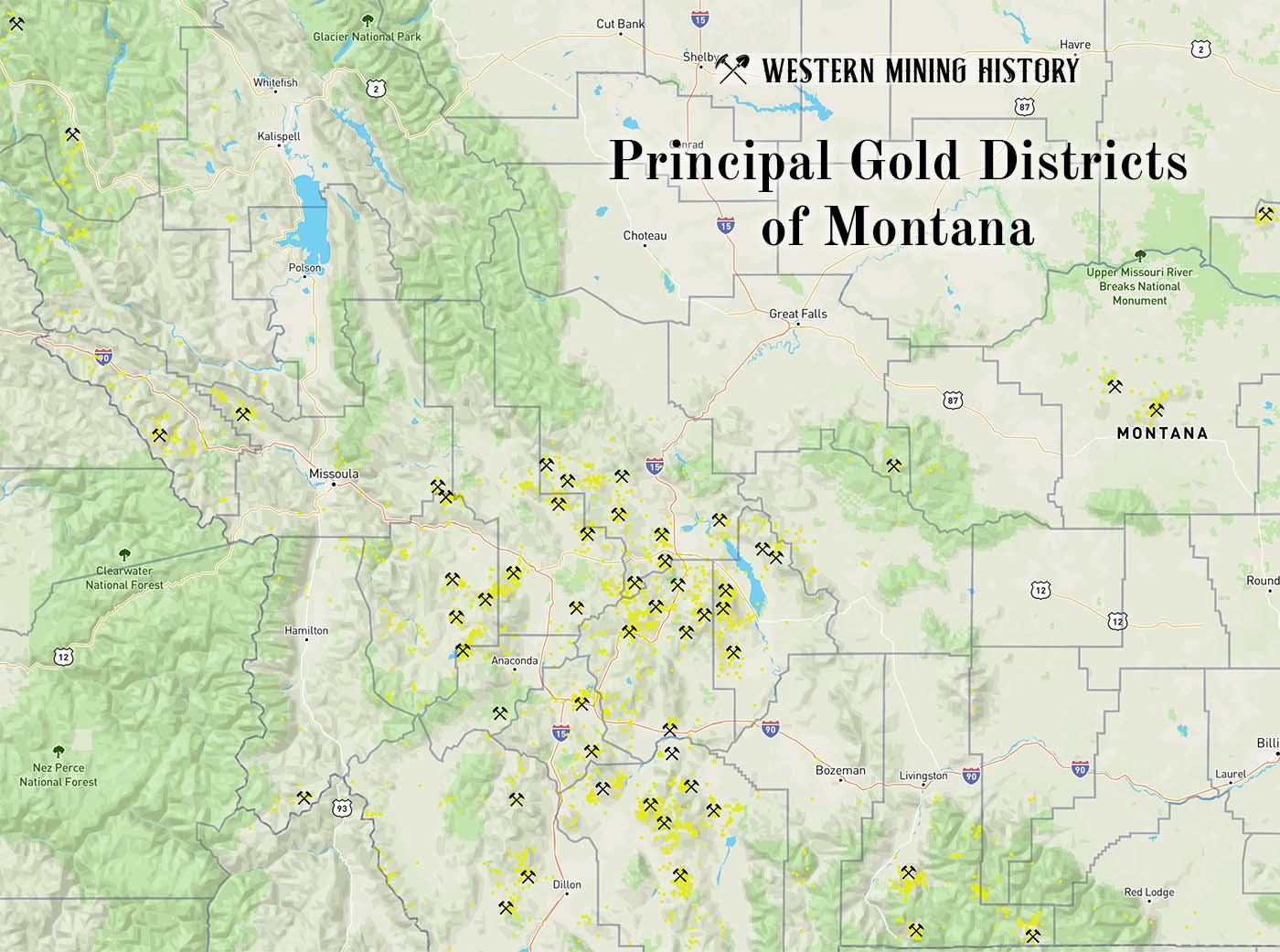The Trapper Mine is a gold, copper, lead, and silver mine located in Beaverhead county, Montana at an elevation of 8,199 feet.
About the MRDS Data:
All mine locations were obtained from the USGS Mineral Resources Data System. The locations and other information in this database have not been verified for accuracy. It should be assumed that all mines are on private property.
Mine Info
Elevation: 8,199 Feet (2,499 Meters)
Commodity: Gold, Copper, Lead, Silver
Lat, Long: 45.59611, -112.91389
Map: View on Google Maps
Trapper Mine MRDS details
Site Name
Primary: Trapper Mine
Commodity
Primary: Gold
Primary: Copper
Primary: Lead
Primary: Silver
Tertiary: Zinc
Location
State: Montana
County: Beaverhead
District: Hecla (Bryant) District
Land Status
Land ownership: Private
Note: the land ownership field only identifies whether the area the mine is in is generally on public lands like Forest Service or BLM land, or if it is in an area that is generally private property. It does not definitively identify property status, nor does it indicate claim status or whether an area is open to prospecting. Always respect private property.
Holdings
Not available
Workings
Type: Underground
Ownership
Owner Name: Leonard Lively
Home Office: Melrose
Production
Not available
Deposit
Record Type: Site
Operation Category: Past Producer
Deposit Type: Vein
Operation Type: Unknown
Discovery Year: 1873
Discovery Method: Unknown
Years of Production:
Organization:
Significant: N
Physiography
General Physiographic Area: Rocky Mountain System
Physiographic Province: Northern Rocky Mountains
Physiographic Detail: Pioneer Mountains
Mineral Deposit Model
Not available
Orebody
Not available
Structure
Type: L
Description: Tear Faults, Drag Folds, Local Domal Structure.
Alterations
Not available
Rocks
Name: Dolomite
Role: Host
Age Type: Associated Rock
Age Young: Late Cretaceous
Name: Dolomite
Role: Host
Age Type: Host Rock
Age Young: Late Cambrian
Analytical Data
Analytical Data: ORE ASSAYS FROM 1897-1899 SHOW 67-118 OZ AG/TON, 1.8-8% PB, 0-1.2% CU, AND 1.4-8% ZN.
Materials
Ore: Galena
Ore: Sphalerite
Gangue: Quartz
Gangue: Siderite
Gangue: Limonite
Gangue: Pyrite
Gangue: Malachite
Comments
Comment (Deposit): DEPOSIT IS CONCENTRATED IN A SHATTERED, THIN-BEDDED DOLOMITE BELOW AN IMPERVIOUS QUARTZITE CAP.
Comment (Location): SW 1/4, SECTION 1 (UNSURVEYED)
Comment (Production): MAIN PRODUCTION WAS 1873-1877. 400 TONS OF ORE WERE PRODUCED 1897-1899.
Comment (Development): ONE PATENTED CLAIM ; ECON.COM: KNOWN DEPOSIT WAS DEPLETED BY 1877, VEINS, ARE CONTORTED AND OFFSET BY POST-MINERAL DEFORMATION
Comment (Workings): DEPOSIT WAS DEVELOPED BY TWO ADITS AND TWO SHAFTS, 310 FT. AND 200 FT. DEEP. ALL ENTRANCES ARE CAVED.
References
Reference (Deposit): MBMG MEM 25, P. 79-82.
Reference (Deposit): MBMG BULL 85, P. 118-120.
Reference (Deposit): 1948 COMPILE M.B.M.G. MEM. 25
Reference (Deposit): 1972 COMPILE M.B.M.G. BULL. 85
Reference (Production): M.B.M.G. BULL. 85
Principal Gold Districts of Montana

In Montana, 54 mining districts have each have produced more than 10,000 ounces of gold. The largest producers are Butte, Helena, Marysville, and Virginia City, each having produced more than one million ounces. Twenty seven other districts are each credited with between 100,000 and one million ounces of gold production. Read more: Principal Gold Districts of Montana.